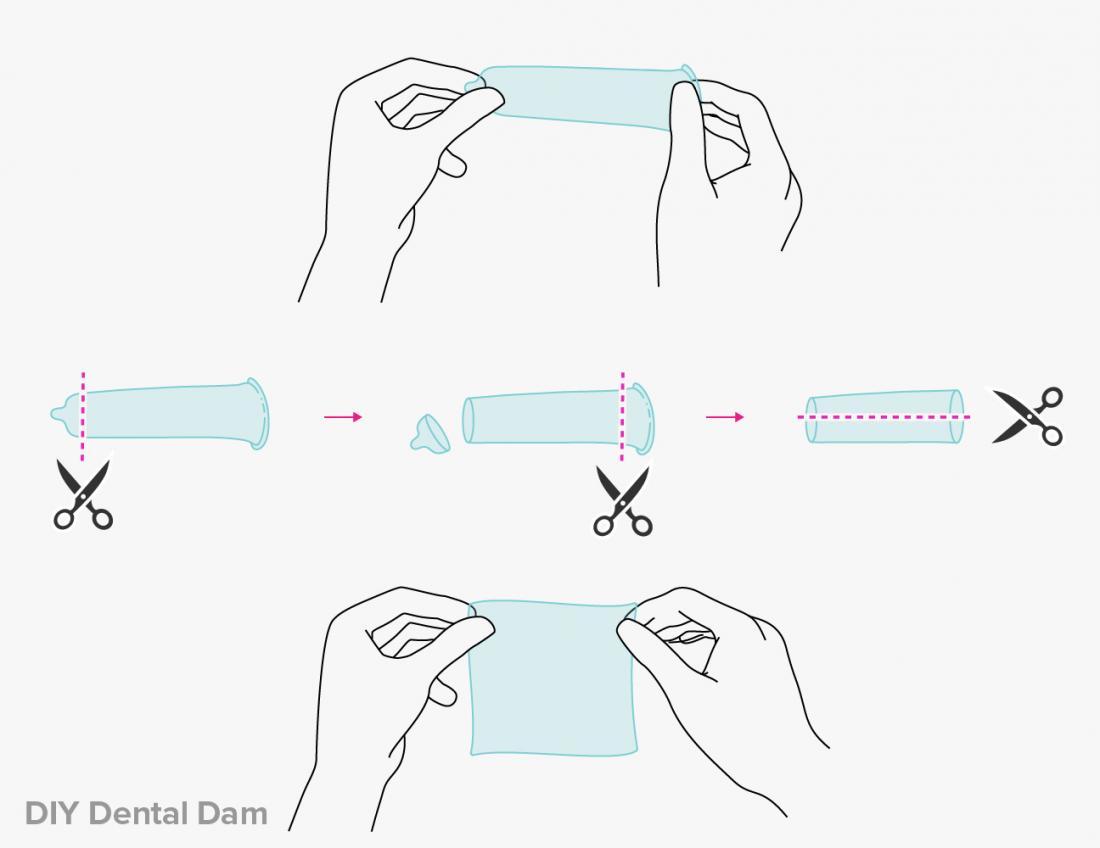A dental dam is a barrier between a person’s mouth and another person’s genitals. Many people use them during oral sex.
Dental dams consist of a square of thin material, usually latex or polyurethane. Dental dams come in a variety of colors and with or without lubricant. Some dental dams are flavored.
What do they protect against?

A dental dam can help prevent the spread of STIs during oral sex.
Image credit: Inga, 2008
Dental dams protect against the spread of sexually transmitted infections (STIs) or other germs, such as E. coli, during oral sex. They prevent the mouth from coming into contact with the vagina, vulva, and anus.
People can transmit several STIs during oral sex, including:
There is little research on how effective dental dams are but, similarly to condoms, people must use them properly and consistently for full protection.
It is possible to transmit other infections, such as herpes simplex type 1 and 2, human papillomavirus (HPV), and pubic lice (crabs).
A person can get genital herpes from an infected partner during oral sex if they have not entirely covered the outbreak or lesion. It is also possible to catch pubic lice from a partner, even while using a dental dam.
Depending on the type of contact, it is possible to get an STI infection in the throat, mouth, anus, rectum, genitals, or even the urinary tract.
Often, a person with an STI in their throat or mouth does not have any symptoms other than a sore throat.
How to use a dental dam
Dental dams are easy to use. Simply unroll the dental dam and place it over the vulva or anus before performing oral sex.
Make sure to use the dental dam during the entire session, from start to finish.
People should only use dental dams over the vulva or anus. When performing oral sex on a man, a person should use a condom instead of a dental dam.
Here are a couple of tips for using a dental dam:
- Use a water-based lubricant. Avoid using oil-based products, such as petroleum jelly, lotion, or oil, as these can make the dam less effective. Apply the lubricant between the dam and the skin to prevent irritation.
- Avoid spermicides or nonoxynol-9 products. These substances can increase the risk of irritation to the mouth or throat.
- Only use a dental dam once. Be sure to use a fresh one for each instance of oral sex.
- Store correctly. Double check expiration dates and keep the dams in a cool, dry place.
- Look out for allergies to latex. Opt for a polyurethane dam if either partner is allergic to latex.
- Throw away damaged dams. If the dam gets crinkled or rips during oral sex, throw it out and use a new one.
Making a homemade dental dam

If a person has a condom, they can just cut the tip and elastic at the base, then make another cut down the length of the condom and open it up into a square.
Another option is to use a sheet of kitchen plastic wrap. Plastic wrap is not designed for this purpose but can add protection if a person does not have access to a condom.
Plastic wrap is readily available in many grocery stores, and a person can use it with either water- or oil-based lubricants. However, plastic wrap is delicate and can rip easily.
Finally, there are single-use oral sex latex panties available, but these have yet to get approval from the United States Food and Drug Administration for this purpose.
While the single-use panties are more expensive than other options, they may feel more comfortable than a dental dam.
Takeaway
It is possible to transmit STIs through oral sex. Many people are not aware that they have an STI of the throat or mouth because there are often no symptoms.
Dental dams can provide a vital layer of protection during oral sex, especially among nonmonogamous couples or those with an active STI.
Dental dams are available at pharmacies, sexual health clinics, and online.

